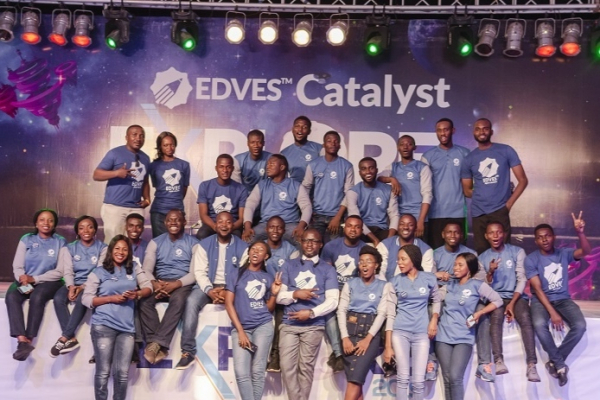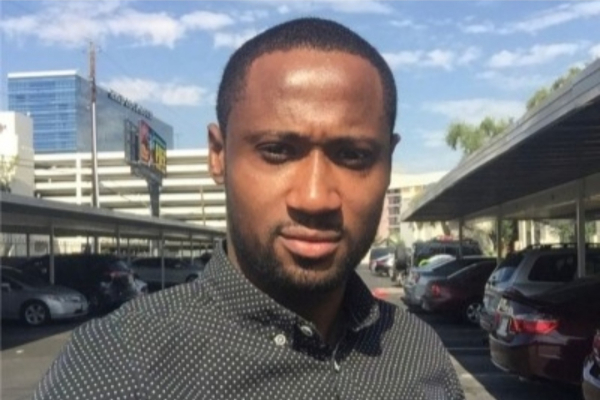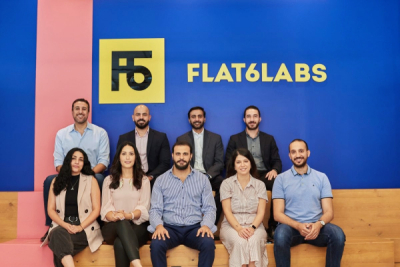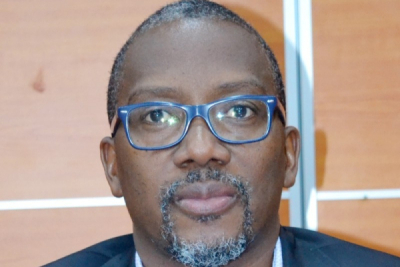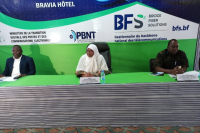In Africa, online education is gradually picking up with the rise of internet and smartphone penetration. Since the coronavirus pandemic, the continent witnessed a rapid development of edtech startups offering ever-interesting solutions.
Edves is an edtech solution developed by a Nigerian start-up. It allows schools to automate the entire student journey and make course delivery and school administration more efficient.
“With Edves, Parents and Teachers can track and analyze Student journey using data on learning objectives and assessment to meet unique needs of the students. In addition to learning management capabilities, its features include; School Fees Payment (using USSD, Bank-to-Bank and Card payment methods) and other critical administrative activities,” the platform indicates.
From its web platform or its iOS and Android -downloaded more than 5,000 times according to Playstore data- apps, parents can keep an eye on their children’s progress. To do that, they need to set up their Edves accounts.
“Edves [...] allows customization per School with unique URL, School Fees Billing Schedule, Fees Collection, Lesson Notes, Color Theme, Report Templates per the School specification. The same software is powering the variations in market demands,” the platform explains.
The solution also makes life easier for teachers and school administrators. Like parents, teachers can monitor the students’ progress and apply particular measures when needed. It gives school authorities a global idea of performance and reports to parents when necessary.
As of 2022, the edtech solution was claiming adoption by more than 1,400 schools (with 269,262 students), 145,053 parents, 25,021 teachers, and 20,997 administrative members. It is present in about 10 countries and, in 2018, it received the Best Educational Technology Award in Switzerland with a $50,000 grant from the Jacobs Foundation. The same year, it landed its first investment of $120,000 from Chinook Capital and GC Fund CChub. In 2021, it also raised $575,000 to improve its technology and support its development to become a Pan-African edtech solution in the years to come.
Adoni Conrad Quenum
A nurse by training, he embarked on entrepreneurship to solve social problems. He has founded two businesses, the youngest of which is helping underbanked individuals boost their creditworthiness.
Joseph Ezekwem (photo) is a Nigerian entrepreneur, business owner, and nurse who graduated from the College of Nursing (Our Lady of Mercy Hospital) in 2009. Also a 2018 graduate of Western Governors University, he is the founder and CEO of fintech startup Ruubby.
Ruubby, launched on February 1, 2023, in Nigeria, was set up to encourage citizens to actively submit their financial data when making purchases. It is a financial marketplace that allows users to build or improve their credit score, allowing them to access better financial products and improve their creditworthiness.
The startup also provides a business management tool that allows business owners to set up online stores and deliver customer services.
Ruubby wants “to provide [the] opportunity for local stores to have their stores on our platform and be able to sell to anyone in any state in Nigeria. The main concern for us is to build the infrastructure and seek the right partnership to make this business a success. Our teams are working tirelessly to address this, and I am very proud of them,” Joseph Ezekwem said in February 2023.
The nurse-turned-entrepreneur is also the founder and CEO of Roland Health, an online homecare marketplace founded in October 2022. His marketplace allows caregivers to reach a wider audience and users to easily hire them.
In 2021, he was still a practicing nurse at Favorite Healthcare Staffing in the United States. Between February and April 2022, he worked as a nurse at Baylor Scott & White Health. Then, in May 2022, he was appointed President and CEO of Umpayas, a peer-to-peer (P2P) marketplace for services such as car rental, package delivery, food delivery, virtual office, etc. He worked there for 4 months.
Melchior Koba
The Angolan government wants to make its new airport one of the best on the continent. For this purpose, it entrusted its digitalization to an experienced international company.
Indra, a Spanish company specializing in the provision of digital services, will equip the new airport of M'Banza Congo, in Angola, with the ground and air systems necessary for its operation. According to a release published by Indra last Tuesday, the contract costs €12.5 million.
“The new airport will join the ones in Luanda, Catumbela, and Lubango, which Indra has already equipped with its solutions, making the implementation easier, faster, and more efficient and creating a highly digitized network in the country,” said Berta Barrero, Managing Director of Indra’s Mobility business.
Under the new contract, Indra will install operational systems for communication, security, and control towers at the airport. In the first phase, the company will deploy its AODB-InBase, RMS-InUse, FIDS-InFlight systems, which are designed to collect data on flight plans, and resource allocation at the airport, as well as provide information to passengers.
Indra will also deploy a check-in and boarding system at the airport and install data, telephony, Wi-Fi, and tetra networks. The contract also includes the installation of closed-circuit video surveillance systems, access control, X-ray, perimeter security, public address system, and parking control technologies.
On the airside, Indra will deploy, among others, its ManagAir solution, one of the most mature, robust, efficient, and flexible airspace management technologies available, with which it has modernized control centers on five continents.
Angola is not the only African country where Indria is active. The company has also implemented its solutions at airports in Kenya, Tunisia, Ghana, and Mozambique, among others.
Samira Njoya
African start-ups play a vital role in economic growth and development. They create jobs, solve problems, and positively impact societies. Funding them is therefore more important than ever.
Last Tuesday, Flat6Labs, MENA’s leading venture capital, announced the launch of the Africa Seed Fund (ASF), a new $95 million seed fund aimed at supporting the growth and development of early-stage tech start-ups in Africa.
The venture capital firm informs that ASF will focus on three main investment territories, namely North Africa, West Africa, and East Africa. It will invest in more than 160 early-stage African tech startups over the next five years with check sizes ranging from $150,000 to $500,000.
It will provide beneficiaries with seed funding, regional business support, access to a regional network of experienced mentors, and regulatory and logistical support to set up and grow their businesses. Two cohorts will be run every year, each with an average of 10 to 15 start-ups. The first investments in the selected start-ups are expected before the end of 2023.
Flat6Labs “ will also be providing seed tickets to seasoned founders independently of the program,” the release announcing the ASF explains. According to the release, the large influx of ASF capital is likely to create more than 14,000 jobs, support more than 1,200 founders, 20% of whom are women, and generate more than $700 million in revenue.
“Africa is one of the most exciting regions to invest in tech and innovation, with huge untapped potential and unique business opportunities. We will leverage our experience and knowledge to guide the startup founders to create truly scalable, investment-ready, Africa-based companies,” said Ramez El-Serafy, General Partner for ASF.
The African tech ecosystem has grown significantly in recent years. According to Partech's Africa Venture Capital Report 2022, the ecosystem attracted $6.5 billion of investments in 2022, up by 8% from the $6 billion attracted in 2021.
Samira Njoya
In Africa, access to healthcare is challenging in some areas. This is why so many healththech startups are being created to offer interesting solutions to ease access to that basic service.
CheckMe Health is a digital solution developed by an Egyptian startup. It allows users access to blood collection services in partner laboratories.
Checkme provides an “easy and smooth experience for everyone, from uploading prescriptions and getting Online Consultation to choosing from the best clinical labs around Egypt to book lab tests, PCR, and Scans and receive your results on your phone,” reads the solution’s web platform.
Through its mobile app (Android and iOS apps), a user can set up an account to access the services offered. He/she can select a medical test or download a prescription directly from the platform, compare the rates applied by the various partner laboratories, and then, book an appointment. Once the appointment is booked, a representative will come to collect the samples and the results will be sent to the mobile app when available.
In December 2022, the startup -which claims more than 100,000 CheckMe Health users- announced the acquisition of DoctorOnline, another healthtech that provides on-demand diagnostics.
According to CheckMeHealth co-founder Nesma El Talawy, “this acquisition falls in line with our expansion strategy in the region and with the expansion of our service offering. According to McKinsey Global Institute, the costs saved by Health-tech to the healthcare sector could lie between $1.5 trillion and $3 trillion a year by 2030, which makes acquisitions like this pivotal in their economic impact in the region.”
Adoni Conrad Quenum
He is an experienced DevOps, network, and database administrator. Elected to head the Benin chapter of the Internet Society, his role is to make Internet access inclusive while raising awareness on proper uses.
Hervé Hounzandji (photo) is a Beninese DevOps systems engineer. He is a graduate of the National School of Applied Economics and Management (ENEAM Benin), where he earned a higher technical diploma in business informatics in 1997. In 2004 he also earned the DESS (old diploma equivalent to the Master) in network and system administration from the University of Lorraine. He was recently elected president of the Benin chapter of the Internet Society.
The Internet Society is a nonprofit organization that promotes internet governance and facilitates access to the internet. It has chapters in several countries. In Benin, its chapter (ISOC Benin) is led by an office that strives for the development of the internet and makes it accessible to everyone.
Hervé Hounzandji, who is officially heading that office since February 25, 2023, presented his roadmap during a press briefing on March 3, 2023. The roadmap is themed "Internet Society Benin Chapter and digital policy in Benin.” According to the new president, ISOC Benin wants to optimize training in several areas while focusing on cybersecurity and artificial intelligence. The organization will also initiate a series of discussion forums on issues related to the use and evolution of the Internet in technical, commercial, and social areas.
"In Benin, we prioritize actions aimed at promoting safe and cheaper internet accessible to everyone as well as awareness and capacity building,” the president said.
Since 2017, the tech professional is a DevOPS system engineer at MNT (Mutuelle Nationale Territoriale) in France. He is a senior instructor for the Benin DNS Forum, an annual exchange on Internet and DNS (a domain name system) issues.
He is a former international volunteer at the Agence Universitaire de la Francophonie. During that volunteering tenure, he served as the local technical manager in Benin. In January 2006, he was hired as a system administrator at the Nancy-Metz rectorate. Nine months later, he became the system and network administrator of the University of Lorraine. In 2013, he was appointed system and database administrator at the Nancy Regional and University Hospital, a position he held until 2017.
Melchior Koba
Burkina Faso, like several other African countries, is engaged in the digital transformation process. The country's ambition is to use digital technologies as tools to transform its society and accelerate socio-economic development.
The government of Burkina Faso has selected Bridge Fiber Solutions (BFS) to operate and manage the country's national telecommunications backbone. The company launched its commercial activities in Ouagadougou on Friday, March 10 in the presence of the Minister of Digital Transition, Posts and Electronic Communications, Aminata Zerbo-Sabané (photo, center).
Speaking about this new step towards an effective digital transition, Aminata Zerbo-Sabané said that "the government has made an important investment by building this national backbone that connects the entire territory with fiber optics and gives access to high-speed internet [necessary] to accelerate digitalization to businesses and the public administration.”
With the government's approval, BFS becomes the sole manager of the public backbone network in Burkina Faso. In that light, it will provide telecom companies and other entities with various services such as capacity leasing, dark fiber leasing, wavelength leasing, duct leasing, and Internet access. It will also invest in the modernization and extension of the network as needed.
The national telecommunications backbone project was launched in 2016 to develop national and international connectivity by interconnecting the country’s 45 provinces with a 3,000 km long optical fiber.
According to BFS director general Boris Compaoré, the launch of BFS is the beginning of a long process that aims, in the short term, to reduce the digital divide and offer quality Internet and favorable conditions to various digital companies and the administration at very competitive rates.
Samira Njoya
At a time when bank account penetration rate is really low in Sub-Saharan Africa, a Guinean fintech wants to develop simple solutions that are accessible to every citizen and offer alternatives to traditional financial services.
Ymo is a fintech solution developed by a Guinean startup. It allows Africans and members of the diaspora to send and receive money in several countries in Africa and Europe.
Thanks to its mobile app accessible on iOS and Android, users can perform all their money transfer operations. They simply have to create their accounts and add beneficiaries to facilitate transfers. For every transfer, senders have to fill in recipients’ first and last names as well as their phone numbers.
"Ymo is a response to the expectations of our Guinean compatriots who live abroad or reside in the country, in Guinea. It is worth noting that the African diaspora is the continent’s leading donor. Yet, as of 2022, it is still difficult for that diaspora to send money to relatives. Ymo was created to address that issue,” said Ymo founder, Abdoulaye Barry, in 2022.
In addition to money transfers, Ymo allows users to easily pay for groceries or bills. The fintech has more than 5,000 relay points and more than 500,000 users in more than 30 countries in Africa and Europe. According to PlayStore data, the Android version of its mobile app has been downloaded more than 50,000 times. Currently, it operates in Guinea but, it plans to reach the whole continent and foster financial inclusion for over 1 billion people. For that purpose, it recently raised €3 million.
Adoni Conrad Quenum
He is a medical scientist specializing in radiology, biomedical chemistry, and molecular biophysics. He holds several patents and is among the leading scientists of the 21st century.
Samuel Achilefu (photo) is a Nigerian professor of radiology, biomedical engineering, biochemistry, and molecular biophysics. He is currently the Chair of the Department of Biomedical Engineering at the University of Texas Southwestern Medical Center.
He graduated from the University of Nancy, France, with a Ph.D. in Chemistry and Materials Science, in 1991. He also completed postdoctoral training in oxygen transport in biological systems and hematological science at the University of Oxford, UK. With his team, Dr. Samuel Achilefu invented cancer visualization goggles.
Before those goggles, it was difficult for surgeons to completely remove the cancerous tumor during surgeries. Thanks to the high-tech, infrared goggles, doctors can now distinguish malignant cells from normal ones during surgeries.
Surgeons told me that one of their problems is seeing beautiful static images of MRI and CT scans—but then when you go into the operating room you have truly nothing. It’s like walking in the dark,” Samuel Achilefu explained in late 2014.
His goggles have been used in more than 27 operations on patients with skin, liver, and breast cancers. Samuel Achilefu and his team explained that the cells must first be injected with an infrared fluorescent marker, allowing malignant cells to glow and get detected.
As an inventor, Samuel Achilefu already has over 65 U.S. patents. He is the author of more than 300 published scientific papers. His professional career began in 1993 at Mallinckrodt Medical where he was a senior researcher. In 2001, he joined Washington University School of Medicine in St. Louis as a professor and director of the optical radiology laboratory.
The inventor has received dozens of awards for his work in healthcare. In 2014, he received the St. Louis Award and the Medical Innovation Award. The following year, he won the St. Louis Innovator Award. The same year, he became the first recipient of the Distinguished Investigator Award from the Breast Cancer Research Program and received the Distinguished Investigator Award from the US Department of Defense.
In 2018, he received the Distinguished Investigator Award from the Academy for Radiology & Biomedical Imaging Research. The following year, he was also awarded the prestigious Britton Chance Biomedical Optics Award and, in 2021, he was elected to the National Academy of Medicine, one of the highest honors in health and medicine.
Melchior Koba
With digital transformation rapidly progressing on the continent, African countries are turning to space technology to accelerate the penetration of telecom services. Angola, which recently launched its second satellite, is already reaping the rewards of that choice.
In seven Angolan cities, hospitals, government offices, schools, and universities now have access to free Internet connectivity and the tools necessary for socio-economic growth, thanks to AngoSat-2, the country’s second satellite.
According to the National Space Program Management Office (GGPEN), the cities that benefit from the new satellite are Uíge, Cuando Cubango, Huíla, Luanda, Cabinda, Moxico, and Lunda-Sul.
The satellite launched on October 12, 2022, was commissioned in line with the national space strategy. Its goal is to help bridge the digital divide and exclusion in the country, in remote and underserved communities notably.
The AngoSat-2 satellite services are expected to cover the entire country, the African continent, and a large part of Southern Europe in the C-band. The satellite will also provide almost complete coverage of Southern Europe and Southern Africa in the Ku-band. It is expected to provide Angola with the means to reduce the digital divide, allowing Angolans equal access to information technology and communication (ICT) tools and opportunities.
AngoSat-2 was built by the Russian company Reshetnev Information Satellite Systems Company (ISS-Reshetnev) and put into orbit from the Baikonur Cosmodrome in Kazakhstan. The spacecraft comes as compensation for the $327.6 million AngoSat-1 satellite that was lost in space shortly after its launch in 2017.
Samira Njoya
More...
Finding a property to buy or rent in large African cities is hard. In Nigeria, a tech entrepreneur wants to address some of the challenges faced by those who embark on that endeavor with his digital solution.
BuyLetLive is a digital solution developed by a Nigerian startup. It allows users, looking for apartments or houses, to find the property they are looking for by browsing classified ads listed on its platform.
According to Ola Daramola, the solution’s founder, BuyLetLive was launched to restore trust in the real estate market that has become complex and opaque.
“[...] We are well aware of the daunting process it takes to find a home. We experience severe opaqueness in the market and a lack of trust. Our solution at Buyletlive is very simple. We aim to ensure our users engage with verified agents and our agents get increased quality leads directly,” he said at a stakeholder engagement forum in 2022.
For the time being, the solution has no mobile applications. Users can browse the listed properties, create their accounts and carry out various actions only through its web platform.
Buyers and renters can use its search functions to customize their search based on various indicators including location, property types, price range, and the number of bedrooms. Agents can use the platform to find properties for their clients or list those available for rent or buying. The solution also allows developers to list their properties.
In 2022, the proptech startup was selected as the "Best Online Real Estate Portal Of The Year” at the Africa Housing Awards.
Adoni Conrad Quenum
She has over 10 years of experience in e-commerce, banking and finance, marketing, and branding in Africa, Asia, and the US. She founded a company that uses AI to help businesses effectively manage their inventory.
Marie-Reine Seshie (photo) is a Ghanaian economist who graduated from the Kwame Nkrumah University of Science and Technology in Kumasi, earning a bachelor of arts in economics. In 2019, she graduated from the Asia School of Business with a master's degree in management and business administration.
She is widely known as the CEO and co-founder of Kola Market, a startup that supports businesses in their sales and marketing activities by leveraging artificial intelligence.
Kola Market, founded in 2021, describes itself as a result-as-a-service company that offers innovative artificial intelligence-powered inventory management, marketing, and sales solutions. Its smart inventory forecasting and management system uses sales data from companies' stores, as well as other external indicators such as inflation, fuel prices, weather, etc., to generate perfect reorder levels daily, so companies can focus on selling and maximizing profits. On March 8, 2023, It was named on the list of the 15 startups that will take part in the inaugural class of Google for Startups Accelerator: Women Founders.
Its CEO is, since 2021, the social media marketing manager of ASB African & Caribbean Foundation, an association created by Asia School of Business students and alumni to uplift “the marginalized.” Her professional career began in 2012, at UBA Group where she was an accounts operations executive. In 2013, she joined First Atlantic Bank Ghana as a management trainee in the business development department. The following year, she continued her traineeship as an executive trainee in the business development and corporate finance departments. Then, in 2016, she was appointed assistant banking assistant.
In May 2019, she was hired by the e-commerce company, Jumia Group, as a project manager before being promoted to marketing manager the same year. In September 2020, she became the marketing manager of The/Studio, an e-commerce company based in California.
Ms. Marie-Reine is one of 22 finalists for the prestigious Aurora Tech Award 2023, which celebrates the female founders whose projects have greatly impacted global development.
Melchior Koba
In recent years, the federal government of Nigeria has multiplied collaborations with local startups. The aim is to harness the youth’s tech expertise for national development.
The Federal Government of Nigeria has approved the use of the humanoid robot "Omeife" to enhance digital literacy in the country. A memorandum of understanding was signed to this effect on Saturday, March 11, between the National Information Technology Development Agency (NITDA) and Uniccon, the company that developed Omeife, the first humanoid robot in Africa.
According to Yau Isa Garba, national director of the NITDA’s National Centre for Artificial Intelligence and Robotics, the “whole idea of the project is [...] to leverage Omeife to deepen digital literacy in Nigeria.”
“The plan is that we are going to use the robot- just like the way people use ChatGTP- for guidance, instructions, and so on,” he added.
Omeife was presented by Nigeria's vice president, Yemi Osinbajo, at the global innovation tradeshow Gitex, Dubai, in October 2022. The 1.80-meter-long female robot was manufactured with local components. It can speak Pidgin, Yoruba, English, French, Arabic, Kiswahili, Hausa, Igbo, and Afrikaans and understands different African cultures. According to Chucks Ekwueme, Uniccon’s CEO, Omeife is “not just multilingual, it can switch languages and interact with specific gestures—hand illustrations, smile, and other bodily gestures—that match the tone of the conversation.”
According to Barrister Emmanuel Edet who was representing the Director General of NITDA, Nigeria plans to develop an application that will allow everyone to take advantage of Omeife.
Meanwhile, according to Chuks Ekwueme, in a context where Nigeria targets 95% digital literacy by 2030, Omeife can lead the country and Africa in general into a digital future.
Samira Njoya
In Africa, despite authorities’ efforts, the number of missing children is not dropping the least. In that context, Morocco wants to capitalize on the decentralization of new technologies and ever-growing social media adoption to introduce a large-scale abduction alert system.
Morocco’s General Directorate of National Security (DGSN) officially launched "Tifli Moukhtafi" - translates to my child is missing- last Tuesday.
The system is a mechanism to alert and call for the search of children who went missing in suspicious circumstances. It was set up by the DGSN in partnership with Meta, the parent company of Facebook, Instagram, and WhatsApp. According to Ouafae Zouidi, head of international judicial cooperation and human rights at the presidency of the Public Prosecutor's Office, it leverages available databases and alert systems and capitalizes on the opportunities offered by artificial intelligence and tech tools in general.
In Africa, the issue of missing children is a tragic and often-neglected humanitarian problem, according to Patrick Youssef, regional director of the International Committee of the Red Cross (ICRC) for Africa. In August 2022, on the sidelines of International Day of the Disappeared, a report published by the ICRC warned that more than 25,000 minors are missing on the entire continent. This figure represents 40% of the 64,000 missing persons cases in Africa, according to the report.
By launching "Tifli Moukhtafi", the Moroccan government wants to put an end to the phenomenon of child abduction in the kingdom. The system includes a feature similar to the U.S. "Amber Alert" which will allow the real-time publication of disappearance cases on Facebook, starting from the users within the geographical area where the disappearance was reported, before being gradually shared in neighboring areas.


